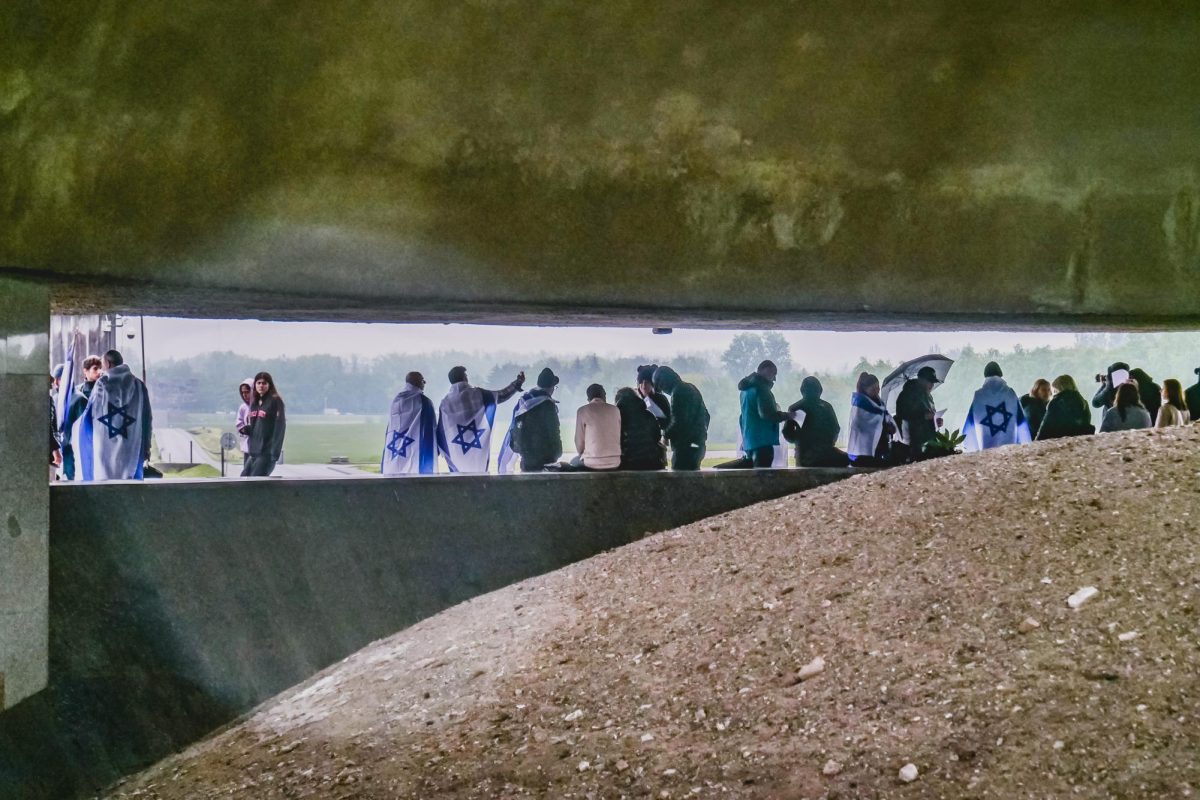By Margo Feuer, 10th Grade
“Blessed are You, Lord our God, Sovereign of the Universe, who has not made me a woman.”
It seems hard to explain that I, who have heard this part of Birkot HaShachar countless times, want to lead my school in this prayer every morning. It makes even less sense when I think about the Jewish women before me who had no alternative bracha as we do nowadays — to be specific, “Blessed are You, Lord our God, Sovereign of the Universe, who has made me according to Your will.”
For my female forerunners, every time they asked for more involvement in the service, the target moved. At first, finding a prayer to lead was the issue, then seeing if this was even acceptable according to halacha (Jewish law). After that the issue was breaking tradition and community structure. In my mind, the only thing that can explain these women’s persistence is a deep love for Judaism.
And that is how I read the words “Thank you for not making me a woman.” Thank you, God, for seeing me not as a woman, but as a Jew.
This year in the Beit Midrash minyan, the girls lead the community in Birkot Hashachar every morning. I am one of them. Some of the more traditional members of the community take issue with it, but this is a great step forward. We’ve made real Shalhevet’s Modern Orthodox, coed, identity while nourishing the spiritual growth of the entire community. Why backtrack?
Modern Orthodoxy means being progressive and adaptive to the outside world while maintaining a Jewish identity. Shalhevet, taking this on, has acknowledged an important idea from outside our tradition: that women have spiritual experiences just as men do. They should have the opportunity to develop those experiences, provided that it does not break halacha. The morning blessings, Birkot Hashachar, are the perfect time to actualize this.
At Shalhevet, Judaic classes are coed. Girls learn the same material as boys because our school – our tradition! — believes they need to be just as informed about religious thought and practice as one another. It should follow that everyone should have the maximum freedom to use that learning. If girls don’t, then half of our community spends a lifetime of dedication and effort to be bored for half an hour every day.
Even the staunchest halachist can’t deny the tangible benefits of this to our community. A running start means that girls will participate more throughout davening, even when they aren’t leading. This means less talking and more enthusiasm. The new policy has thus improved the community as a whole, creating a codependency that strengthens all of our prayers. The girls feel empowered with their new role, and it breaks the impression that only men can lead the community. Now, girls have a responsibility to the men and vise versa, creating a feeling that both genders are equal — a feeling Shalhevet has never felt before, at least not in tefilah.
On the other side of the picket line are the self-proclaimed traditionalists.Their gripe is that Shalhevet does not respect the deeply important weight of tradition, or the idea that the bima is some kind of men’s “turf.” They admit that the issue of a minyan also does not apply, because of the original nature of the blessings.
Absent a halachic issue, the trouble here is simply that somemen want to keep the whole service to themselves. I could make the argument that five minutes hardly makes a difference, that it still leaves them with 45 minutes, the vast majority of the service. But it actually does make a difference: for those of us who sat bored through davening, even five minutes of participation is something to look forward to. It helps make our prayers meaningful to everyone.
On the border of assimilation and insularity, our Modern Orthodox school community has valid reasons to be afraid of innovation. Change is always a little alarming, especially traditions as long-held as ours. But the change has already been made and the sky has not fallen. Birkot HaShachar can only be seen as an enormously beneficial addition, and must forever stay in the hands of the women.
Related: Two Boiling Points of View: Tradition should be stable
Related: Girls are leading morning blessings in the Main Minyan












